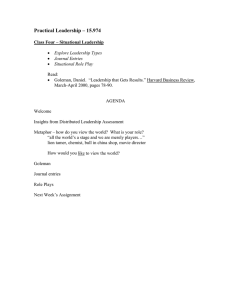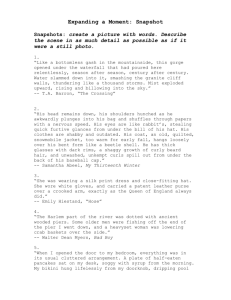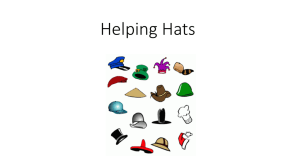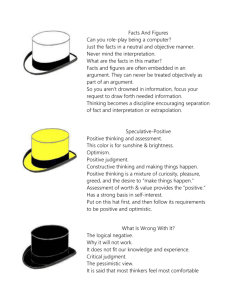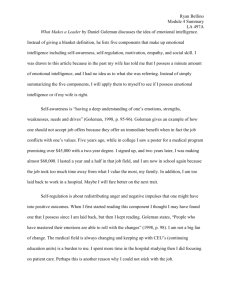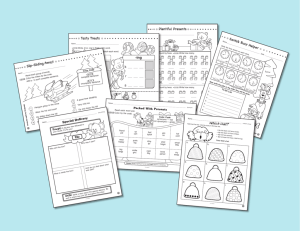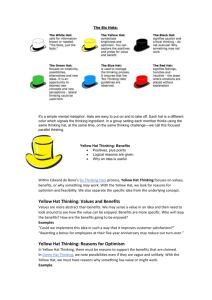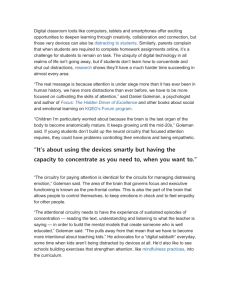Goleman Scenarios - The Essential Handbook for GP Training
advertisement
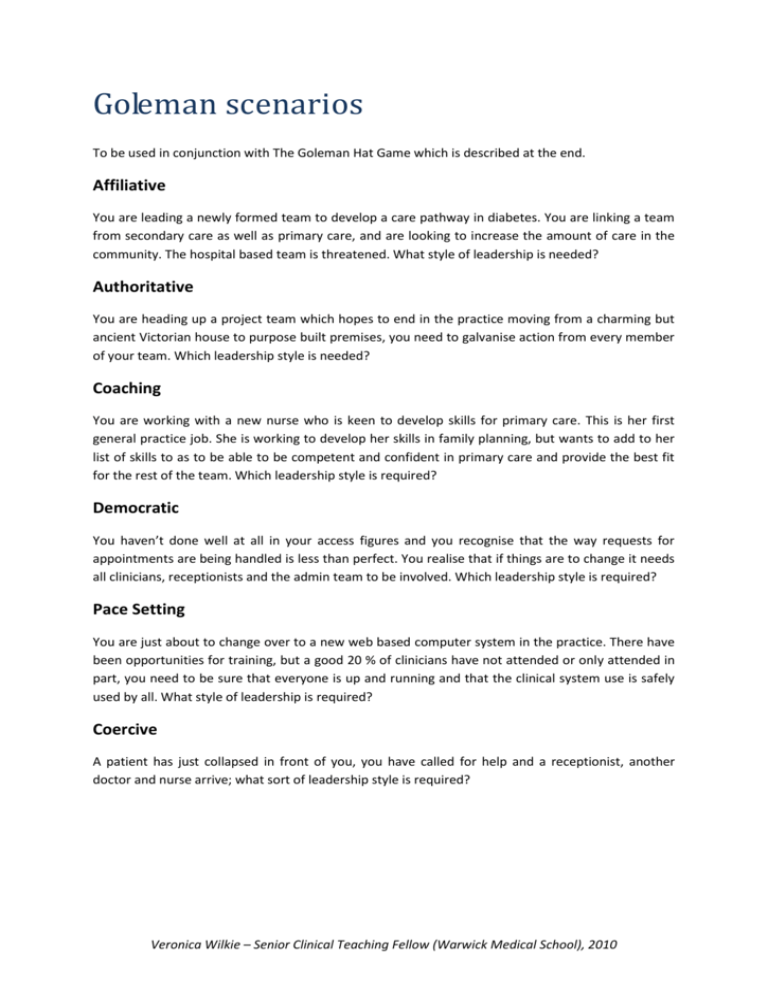
Goleman scenarios To be used in conjunction with The Goleman Hat Game which is described at the end. Affiliative You are leading a newly formed team to develop a care pathway in diabetes. You are linking a team from secondary care as well as primary care, and are looking to increase the amount of care in the community. The hospital based team is threatened. What style of leadership is needed? Authoritative You are heading up a project team which hopes to end in the practice moving from a charming but ancient Victorian house to purpose built premises, you need to galvanise action from every member of your team. Which leadership style is needed? Coaching You are working with a new nurse who is keen to develop skills for primary care. This is her first general practice job. She is working to develop her skills in family planning, but wants to add to her list of skills to as to be able to be competent and confident in primary care and provide the best fit for the rest of the team. Which leadership style is required? Democratic You haven’t done well at all in your access figures and you recognise that the way requests for appointments are being handled is less than perfect. You realise that if things are to change it needs all clinicians, receptionists and the admin team to be involved. Which leadership style is required? Pace Setting You are just about to change over to a new web based computer system in the practice. There have been opportunities for training, but a good 20 % of clinicians have not attended or only attended in part, you need to be sure that everyone is up and running and that the clinical system use is safely used by all. What style of leadership is required? Coercive A patient has just collapsed in front of you, you have called for help and a receptionist, another doctor and nurse arrive; what sort of leadership style is required? Veronica Wilkie – Senior Clinical Teaching Fellow (Warwick Medical School), 2010 The Goleman Hat Game This game looks at the six leadership styles that Goleman18 (also famous for his writing on emotional intelligence19) identified. These are: Affiliative, Authoritative, Coaching, Democratic, Pace Setting and Coercive, Method: The facilitator reads out a scenario and the groups have to rush to identify a hat with the appropriate leadership style on it (use coloured paper crowns with each style written in with thick black ink). Some of the scenarios are obvious (a patient requiring resuscitation – coercive), but some can be written to identify more than one style. And if more than one hat is grabbed and worn by an individual he or she then needs to debate its merits with the person wearing one of the others. It helps to put the definitions up on a flip chart or on a PowerPoint slide so that people can use it as a reference at the start. By the end, the group generally has a pretty good idea of how each style is defined and which scenario would require which style. Variations: Goleman Chair game - with them rushing to sit on the appropriate chair rather than grabbing a hat. Veronica Wilkie – Senior Clinical Teaching Fellow (Warwick Medical School), 2010
